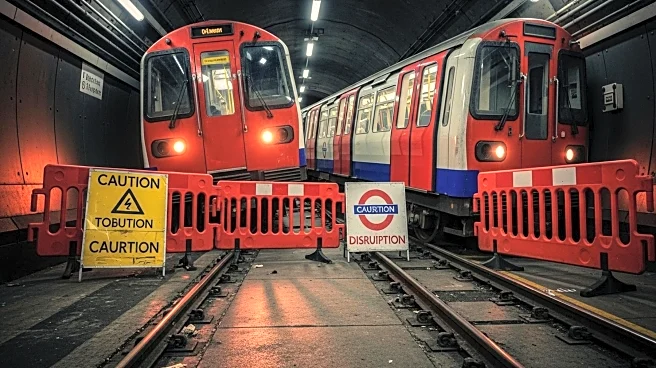What's Happening?
A strike by members of the Rail, Maritime and Transport union (RMT) has severely disrupted services on the London Underground, forcing commuters to rely on alternative transportation methods such as bikes, buses, and taxis. The strike, which is over pay and working conditions, including a demand for a reduction in working hours, is set to continue until Friday morning. Transport for London (TfL) reported that while the Elizabeth line and Overground remain operational, they are experiencing higher than usual passenger volumes. The strike has led to significant delays and longer commutes for many Londoners.
Why It's Important?
The Tube strike highlights ongoing tensions between transport unions and management over working conditions and pay. The disruption affects thousands of commuters, impacting productivity and daily routines. Businesses may face challenges as employees struggle to reach workplaces, potentially leading to economic losses. The strike also underscores broader issues within public transportation systems, such as staffing shortages and financial constraints. The demand for a shorter working week by the RMT raises questions about labor rights and the sustainability of current work practices in the transport sector.
What's Next?
Negotiations between the RMT and TfL are expected to continue as both parties seek a resolution to the dispute. The strike's continuation could lead to increased pressure on alternative transport services and further inconvenience for commuters. Political leaders, including the Mayor of London, have urged both sides to reach an agreement to minimize disruption. The outcome of these negotiations may influence future labor relations and policies within the transport industry, potentially setting precedents for other sectors facing similar challenges.








